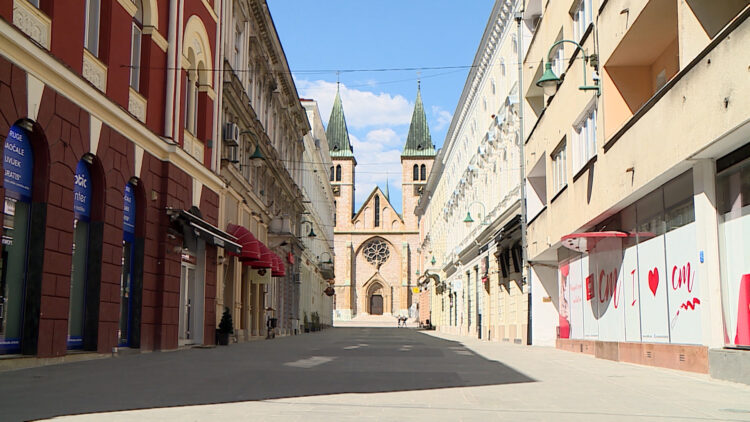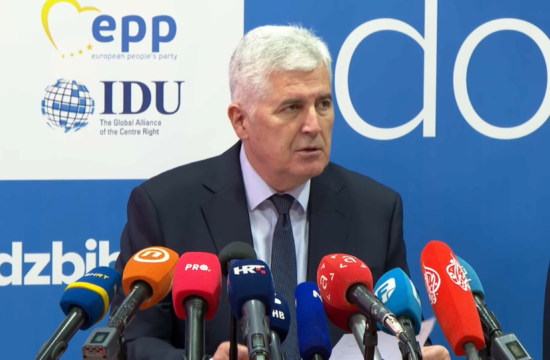
Bosnia’s Franciscans expressed support for the Catholic Archbishop and his announced Holy Mass dedicated to those killed in Bleiburg in 1945, arguing that the attacks the religious leader is facing are “attempts to endanger religious freedoms and political interference in exclusively religious issues.”
“Faced with unfounded and malicious public attacks against the exemplary Cardinal Vinko Puljic, which escalated during a days-long witchhunt over the announced commemorative Mass for all innocent victims killed during and after the Second World War, which is to take place at the Sarajevo Cathedral, the Franciscan Province of Bosna Srebrena resolutely rejects these slanderous attacks not only on the Cardinal but also implicitly on the Catholic Church and the Croat people,” a statement by the Administration of the Franciscan Province of Bosna Srebrena said.
The Mass, which is to take place on Saturday at Sarajevo’s Sacred Heart Cathedral, will be a prayer for “all the innocent victims in Bleiburg and all other victims of the Yugoslavian communist regime,” the statement said.
Amid a Yugoslav army offensive aimed at defeating pro-Nazi and anti-communist forces, tens of thousands of mostly pro-fascist Croat soldiers and their families fled in 1945 toward Austria to seek help from the British army, only to be turned back by the Brits right into the hands of anti-fascists.
In and around the Austrian town of Bleiburg, thousands of the so-called Ustashas were killed. The Yugoslav forces saw the slaughter they committed as punishment for the tens of thousands of Jews, Serbs, Roma and anti-fascists killed by the Ustasha during WWII.
After the dissolution of Yugoslavia, Croatia began commemorating the Bleiburg victims with a large gathering near the Austrian town every year but it was cancelled this year due to the coronavirus pandemic.
The organisers of the event, the Honorary Bleiburg Platoon, said it will be held in different cities instead, among them in Sarajevo.
“It is utterly unacceptable for anyone, for any reason, especially by threatening and blackmailing, to dictate how and where the Catholic Church may pray for its deceased and show them reverence,” the Franciscans said.
Showing reverence to victims of the past wars is the “fundamental step toward reconciliation and peaceful coexistence,” they argued, adding that the crimes committed by the Partisans should be condemned just as much as those committed by the Chetniks, the Ustashas, the Germans and the Italians.
The Franciscans pointed out that 57 of their members were among the victims of that regime and that they were killed “out of religious and nationalist hatred,” adding that the Yugoslav communist regime killed 663 Church officials.
They argued that a lot more prisoners and civilians, including women and children, were killed, breaching the 1929 Geneva Convention on Treatment of Prisoners of War, but that the number of victims of the regime was never determined.
They also noted that the Council of Europe has in 2006 adopted a Resolution condemning the crimes of totalitarian communist regimes, while the European Parliament has last year adopted a Resolution on the importance of European remembrance for the future of Europe, which called for international condemnation of crimes of totalitarian communist regimes.
“Both of those resolutions were completely ignored in our public,” they argued, adding that the country is dominated by “so-called ‘anti-fascists’,” whose main goals are to prevent society from learning about communist crimes and to characterise all Croats as ‘Ustashas’.






